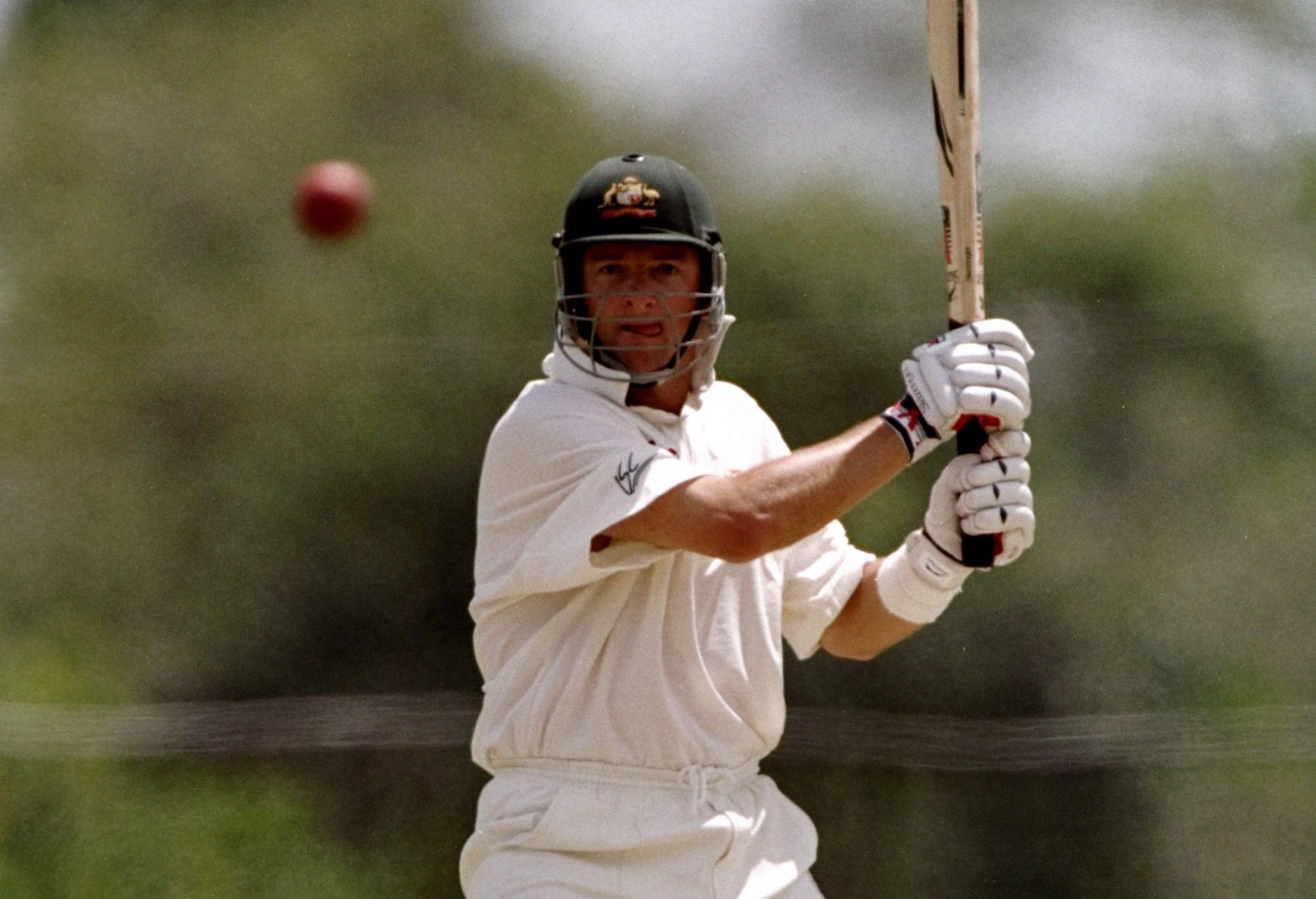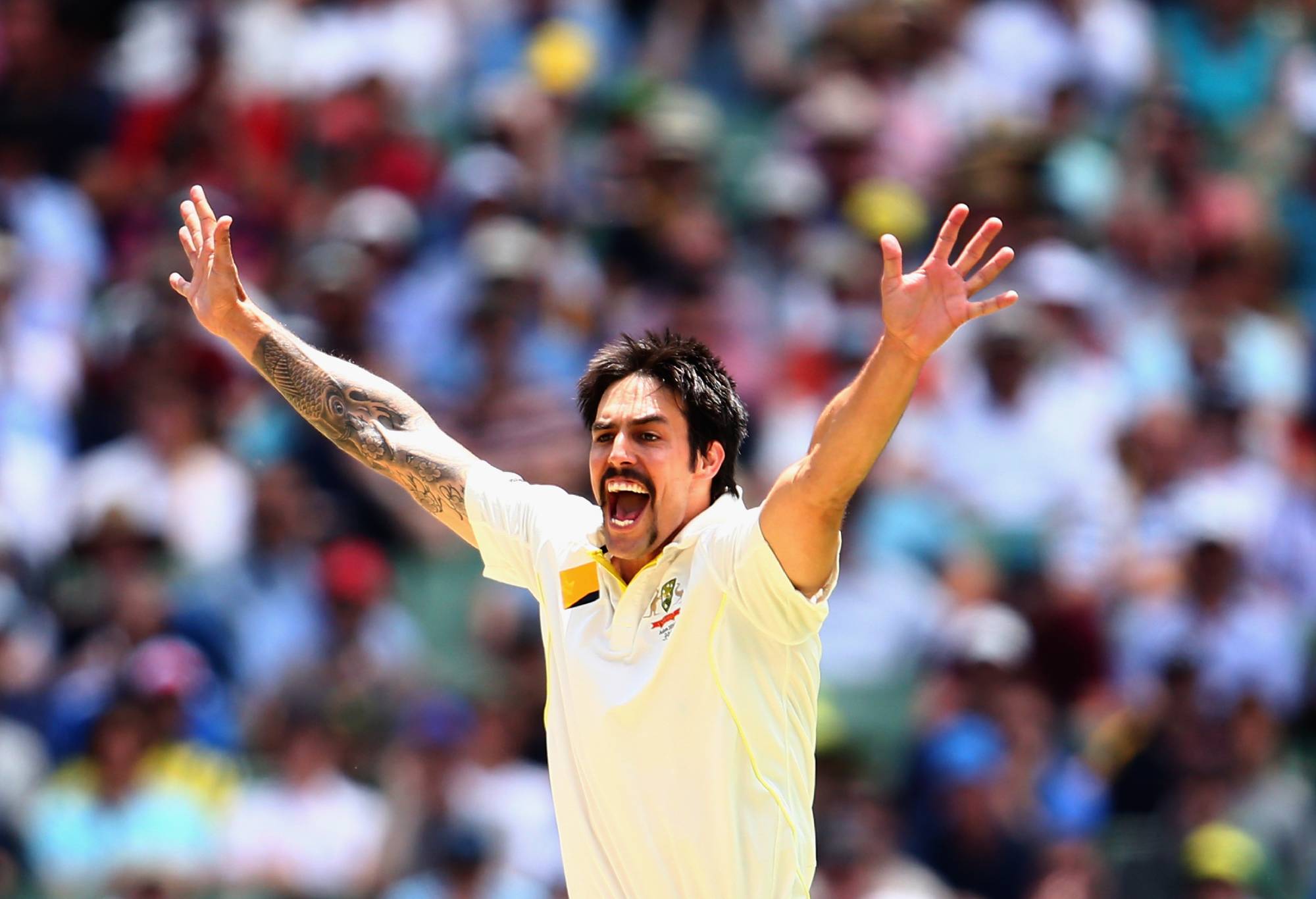Adelaide Oval has hosted many wonderful Ashes matches – from ‘Amazing Adelaide’ in the 2006-07 series, all the way back to spinner Chuck Fleetwood-Smith’s heroics in 1936-37.
I want to take a look at some of the most memorable Ashes performances ever in the city of churches, and name an all-time Australian team for this ground alone.
The Aussies have recorded 19 victories over England, including five of their last six contests. While the team below includes many modern-day players, it also contains a number whose exploits took place long ago.
1. Percy McDonnell, 1884-85
‘Greatheart’ McDonnell’s performance in Adelaide’s inaugural Test ranks among the best by an Australian in a losing cause.
In Australia’s first innings he scored 124. Upon his dismissal, the team slipped from 3-190 to 243 all out. The visitors replied with 369.
In the second innings his wicket, run out by his partner after scoring 83, prompted a collapse from 2-125 to 191 all out. England then easily reached its 66-run victory target.
McDonnell scored 48 per cent of his side’s runs, the highest proportion ever by an Australian in a loss. He scored his 207 runs at a rate of 64 per hundred balls, while his ten teammates collectively managed 211 runs at a rate of just 29 per 100 deliveries.
2. Archie Jackson, 1928-29
Jackson debuted aged 19, scoring 164 and 36. Of all Australians in their first match, only Charles Bannerman has made a higher score, and only Kepler Wessels has scored more runs in total.
Many contemporaries considered Jackson the best Australian batsman since Victor Trumper, and the equal of teammate Don Bradman. Tragically, he died aged just 23.
Jackson’s chanceless century came after the home side slumped to 3-19 in reply to England’s 334. The Wisden Cricketers’ Almanack wrote: ‘The position did not seem to trouble him in the slightest, and he drove, cut and hit to leg with the utmost certainty and confidence… for sheer brilliance of execution his strokes during this delightful display could scarcely have been exceeded.’
Australia ultimately lost the match by just 12 runs.
3. Don Bradman (captain), 1936-37
This was Bradman’s first Test at his adopted home of South Australia, and first series as captain; the visitors led 2-1. Another loss would secure England the Ashes.
In his side’s first innings of 288, the Don contributed only 26, and its opponent responded with 330. Australia batted again and was in early trouble at 2-88.
Bradman then single-handedly rescued his side with 212 runs from 395 deliveries, his seventh double-century against England.
With his dismissal, Australia lost its remaining five wickets for just 11 runs, to total 433. England required 392 for victory but reached only 243, with spinner Fleetwood-Smith the chief destroyer (more on him later).
Australia levelled the series with one match to play, and went on to win the series 3-2 – the only time a team has ever recovered from a 2-0 series deficit to claim the Ashes.
4. Mark Waugh, 1990-91
The elegant right-hander made a long-overdue Test debut aged 25, famously picked in place of brother Steve. He celebrated it with a highly-meaningful innings.
Waugh arrived at the crease with his side precariously placed at 4-104, which quickly became 5-124. He and Greg Matthews then shared a 171-run stand to steady the ship; the debutant’s share was 138 from just 188 deliveries, including 18 boundaries.
When Australia batted again with a 157-run first-innings lead, he commenced batting with the score 3-25, and added another 23 runs to help set the visitors 472 for victory. The game ultimately ended in a draw, but Waugh had ensured, at least, that defeat was avoided.

(Credit: Shaun Botterill/Allsport/Getty Images)
5. Jack Ryder, 1924-25
The all-rounder and future captain tallied an immense 289 runs in total in this match, the most ever by an Australian against England at the ground.
His team’s subsequent victory by just 11 runs meant a 3-0 series lead and the Ashes’ retention.
The home side had slumped to 6-119, before Ryder’s undefeated 201 enabled it to reach a whopping 489. The visitors replied with 365.
When Australia batted again he was promoted up the order, from seven to three – quite the rise! His 88 from just 119 balls anchored a total of 250. But for rain mid-innings that made batting difficult, he may have added a ton to his double-century.
The visitors were set 375 for victory, and fell just short – and there was no question who had single-handedly cost the old enemy the match.
6. Rod Marsh, 1982-83 (wicketkeeper)
The left-handed keeper-batsman claimed the most catches by any player in an Ashes match in Adelaide, claiming seven chances in a victory to extend the Aussies’ series lead to 2-0.
After Australia scored 438, it restricted England to 216. Marsh safely pouched each of the visitors’ first four batsmen, with Geoff Lawson the successful bowler for three of them.
When England followed on and tallied 304, Marsh claimed another three victims; Australia reached its 83-run target for the loss of two wickets.
7. Mitchell Johnson, 2013-14
The intimidating left-armer completely dominated England for a second consecutive game, after a nine-wicket haul in the first Test at the Gabba. His performance earned him Man of the Match honours, and was arguably the highlight of his 37-wicket campaign that battered the old enemy into a 5-0 series whitewash.
After Australia racked up a whopping 570 in their first innings, Johnson clean-bowled opposing skipper Alastair Cook shortly before stumps on day two. The following day he scythed through the visitors with a remarkable spell of bowling, to finish with the figures of 7-40. He bowled out three more batsmen – including his famous stare-down of James Anderson – and in one over took the wickets of Ben Stokes (on debut), Matt Prior and Stuart Broad.

Mitchell Johnson of Australia celebrates after taking the wicket of Alastair Cook of England during day three of the Fourth Ashes Test Match between Australia and England at Melbourne Cricket Ground on December 28, 2013 in Melbourne, Australia. (Photo by Ryan Pierse/Getty Images)
Johnson would only take one wicket in the second innings in a comfortable Australian win, but his day three onslaught had already set the Aussies on a path to regaining the little urn.
8. Albert Trott, 1894-95
The hard-hitting medium-pace off-spinner (yep, he did the lot!) made a stunning debut, yet after the series ended, never played again for Australia.
With the bat, he contributed 110 runs without being dismissed, from number ten in the order. In Australia’s first innings his share was 38; in its second he added a further 72 in just 90 minutes. As a result, his career batting average from three games for Australia is 102.50 – move over, Bradman!
He also took the new ball in each England innings. In its first one, he delivered three wicketless overs; while in its second, he bowled almost-unchanged to claim 8-43, including two return catches. He also took the catch to end the match, and deprive himself of a ninth wicket.
Trott is also famous for two performances for Middlesex at Lord’s. He ripped apart his testimonial match with four wickets in consecutive balls and then a separate hat-trick, both on the same day. In another match, he hit a six that cleared the Members’ Pavilion roof.
9. Geoff Lawson, 1982-83
The Wagga Wagga-born quick continued his dominant series with a Man of the Match performance. It extended Australia’s lead to 2-0, and his wicket tally to 26 from three games.
The home side amassed 438, with Lawson promoted to number five as a nightwatchman. He survived until stumps, before being dismissed cheaply the following morning. Better was soon to come with the ball, though.
England replied with 216, of which Lawson’s share was 4-56. His victims were all top-six batsmen: Graeme Fowler, David Gower, Allan Lamb and Derek Randall.
The visitors followed on, and improved by scoring 304. This time Lawson’s share was 5-66. Fowler and Randall again featured among his victims. Australia won the match comfortably by eight wickets.
10. Dennis Lillee, 1974-75
A match-winning performance by arguably Australia’s greatest ever fast bowler extended his team’s series lead to 4-0.
The home side reached 304, then dismissed England for just 172. Lillee claimed 4-49, and also took two catches. After Australia closed its second innings at 5-272 to set the visitors a 405-run target, he was again successful in claiming 4-69 for match figures of 8-118.
Seven of Lillee’s eight victims were top-order batsmen; he dismissed Dennis Amiss twice as well as David Lloyd, Tony Greig, Mike Denness, Colin Cowdrey and Keith Fletcher. The visitors never recovered from being reduced to 2-19 in its first innings, and 4-33 in its second.
11. Chuck Fleetwood-Smith, 1936-37
The mercurial left-arm wrist-spinner took the most wickets by an Australian in an Ashes match in Adelaide. His match aggregate of 10-239 on a perfect pitch enabled the home side to level the series at 2-2, after losing its first two games.
After Australia scored a modest 288, the visitors reached 2-190 and then 4-259. Fleetwood-Smith’s 4-129 helped restrict them to 330.
When the home side needed to defend a 392-run target to keep the Ashes alive, thanks to those Bradman heroics, Fleetwood-Smith again led the way. He bowled almost unchanged for 30 eight-ball overs to claim 6-110.
His victims included five of the visitors’ first seven batsmen. Three were clean-bowled, including Les Ames for a golden duck and major threat Wally Hammond, with a ball famously described by the batter as a ‘humdinger’. England could manage only 243, as Australia headed towards a famous series comeback.































































































